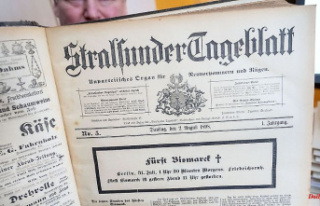A lack of medication, overcrowded clinics, sick patients, doctors and nurses - even after the Corona years, the health system is overloaded. Will the measures taken by the federal government turn the tide? Doctors' and pharmacists' associations have doubts.
Despite the countermeasures that have been announced, general practitioners and pharmacists are expecting a sustained shortage of medicines in the coming months. "The measures now being discussed will only help to a limited extent in general practitioner care in the short term," said Nicola Buhlinger-Göpfarth, deputy federal chairman of the German Association of General Practitioners, to the "Rheinische Post". "The delivery bottlenecks can be felt very clearly in general practitioners' practices. General practitioners now have to invest a lot of time in order to switch medications, if this is at all possible."
The North Rhine Pharmacists' Association also expects long-lasting delivery problems with medicines. "It will take many months before the supply situation improves. We assume that the supply problems will continue in 2023 and that other medicines will be affected," said association leader Thomas Preis of the newspaper. "New drugs are becoming scarce every day: there are currently no drugs for desensitizing allergy sufferers, they should only come in May - when the pollen season has already started - but then you can no longer desensitize."
Health Minister Karl Lauterbach's plans are just "a drop in the ocean". The SPD politician wants to better secure the supply of important medicines, especially for children, against supply bottlenecks. Key points for a law include new price rules. This should make deliveries more economically attractive for providers. In the ZDF "heute journal" the minister said: "We have seen the problem for a long time. We have to have some of the important active ingredients produced in Europe again. And the only thing that helps is that the health insurance companies then have to buy from Europe."
The president of the German Medical Association, Klaus Reinhardt, called on Lauterbach in the "Rheinische Post" to only allow higher prices for children's medicines that are really relevant to the supply. In contrast, the CSU health expert Stephan Pilsinger criticized in the "Augsburger Allgemeine": "Unfortunately, the measures do not go far enough." Of the more than 330 medicines affected by bottlenecks, only a few groups of medicines such as children's medicines, cancer medicines or antibiotics would be covered by the planned measures.
In view of the overcrowding in clinics, the German Association of Cities appealed to resident doctors to keep their practices open longer. "Please consider keeping your practices open after 6 p.m., on Saturdays and Sundays and on public holidays," said general manager Helmut Dedy to the newspapers of the Funke media group. In the case of simple illnesses, patients should dial the outpatient emergency care number of the resident doctors, 116117, and not the number 112 of the local emergency services. This is only for real emergencies.
In addition to corona, other respiratory diseases such as the RS viruses in children are currently causing many serious infections and overloaded clinics. According to the German Hospital Society, almost every tenth clinic employee is currently ill himself.












